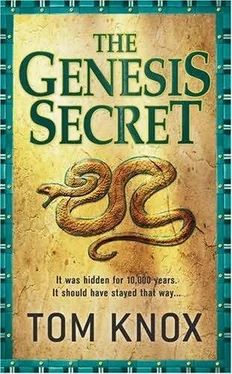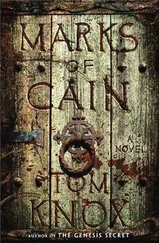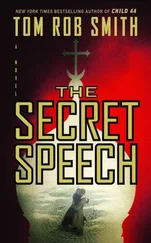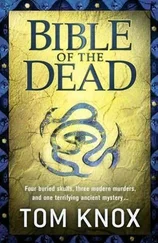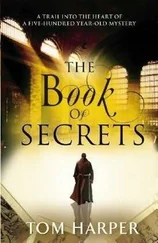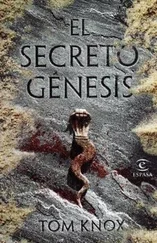Tom Knox - The Genesis Secret
Здесь есть возможность читать онлайн «Tom Knox - The Genesis Secret» весь текст электронной книги совершенно бесплатно (целиком полную версию без сокращений). В некоторых случаях можно слушать аудио, скачать через торрент в формате fb2 и присутствует краткое содержание. Жанр: Триллер, на английском языке. Описание произведения, (предисловие) а так же отзывы посетителей доступны на портале библиотеки ЛибКат.
- Название:The Genesis Secret
- Автор:
- Жанр:
- Год:неизвестен
- ISBN:нет данных
- Рейтинг книги:5 / 5. Голосов: 1
-
Избранное:Добавить в избранное
- Отзывы:
-
Ваша оценка:
- 100
- 1
- 2
- 3
- 4
- 5
The Genesis Secret: краткое содержание, описание и аннотация
Предлагаем к чтению аннотацию, описание, краткое содержание или предисловие (зависит от того, что написал сам автор книги «The Genesis Secret»). Если вы не нашли необходимую информацию о книге — напишите в комментариях, мы постараемся отыскать её.
The Genesis Secret — читать онлайн бесплатно полную книгу (весь текст) целиком
Ниже представлен текст книги, разбитый по страницам. Система сохранения места последней прочитанной страницы, позволяет с удобством читать онлайн бесплатно книгу «The Genesis Secret», без необходимости каждый раз заново искать на чём Вы остановились. Поставьте закладку, и сможете в любой момент перейти на страницу, на которой закончили чтение.
Интервал:
Закладка:
His journalistic need was to put the dig in context. He'd been reading some more history books-prehistory books-and he wanted to place Gobekli Tepe somewhere within that history. See how it fitted in, how it gleamed in the mosaic of wider human history-the evolution of man and civilization.
Franz was happy to oblige. 'This area,' he waved his arm at the yellow hills beyond the open-sided tents, 'is where it all began. Human civilization. The first written language is cuneiform, that started not far away. Copper smelting is originally Mesopotamian. And the first true towns were built in Turkey. Isobel Previn could tell you all about that.'
Rob was mystified. Then he remembered the name-Christine's tutor at Cambridge. Isobel Previn. Rob had also read the name in various history books-Previn had worked with the great James Mellaert, the English archaeologist who excavated Catalhoyuk. Rob had enjoyed reading about Catalhoyuk-not least because they dug it up so quickly. Three years of lusty shovelling and it was nearly all revealed. That was the heroic, Hollywood age of archaeology. Nowadays, as far as Rob could tell, things had slowed down. Now there were so many experts in different fields-archaeometallurgists, zooarchaeologists, ethnohistorians, geomorphologists-it had all got very intricate. A complex site could take decades to unravel.
Gobekli Tepe was such a site. Franz had been digging in Gobekli since 1994; Christine had implied that he would spend the rest of his working life here. A whole working life on one site! But then again, it was the most amazing archaeological site in the world. Which was probably why Franz looked so chuffed most of the time. He was smiling right now-explaining to Rob about the early history of pottery and agriculture, both of which came after Gobekli Tepe was built. Both of which also started nearby.
'The first ever signs of farming can be found in Syria. Gordon Childe called it the Neolithic Revolution and it happened not far to the south. Abu Hureyra, Tell Aswad, places like that. So you see this really is the cradle. Metalwork, pottery, farming, smelting, writing all began near Gobekli. Ja?'
Christine added, 'Yes, though actually there is some evidence of rice farming in Korea in 13,000 BC, but it is enigmatic.'
Ivan, who had been silent until now, also joined in: 'And there is some strange evidence that pottery may have started and then stopped before that, in Siberia.'
Rob turned. 'Sorry?' Franz looked slightly irritated by his colleague's interruption, but Rob was intrigued. 'Go on?'
Ivan blushed. 'Erm…we have evidence from eastern Siberia, maybe Japan, of an even earlier civilization. A northern people. Possibly they died out, because the evidence disappears. We do not know. We have no idea where they went.'
Franz looked nettled. 'Ja, ja, ja, Ivan. But still! This area is where it really happened. The Near East! Here.' He slapped his hand on the table for emphasis, making the teaspoons rattle. 'All of it. All of it started here. The first kilns for making pots. That was in Syria, and Iraq. The Hittites made the first iron. In Anatolia. The first domestic pigs were in Cayonu, the first villages were in Anatolia, and…and of course the first temple…'
'Gobekli Tepe!'
Everyone laughed. Peace had been restored, and the conversation evolved. Rob spent a diligent ten minutes copying out his notes, while the archaeologists chatted amongst themselves about domestication of early animals and the distribution of 'microliths'. The discussion was technical and obscure; Rob didn't mind. He had the final pieces to the jigsaw. It wasn't the whole picture-the mysteries remained-but it was a good picture and a compelling picture and it would have to do. Besides, he was a journalist, not a historian. He wasn't here to get everything right, he was here to get a vivid impression, quickly. What did they call journalism? 'The first draft of history'. That was all he was doing and all he was meant to do: he was writing the first rough draft.
He looked up. He'd been annotating for half an hour now. The scientists had left him to it; they had dispersed around the dig to do whatever it was they actually did when they weren't arguing. Examining dust and sieving old rocks. Sitting in their cabins having more arguments. Rob stood up, rubbed his stiff neck and decided to go for a wander about the place before making his exit. So he hoisted his rucksack and walked out around the nearest hillock, skirting the enclosures and the stones.
Beyond the main area of the dig was a vast bare field, scattered with flints. Christine had showed him this place on his previous visit. Rob had been amazed at the time to see so many twelve-thousand-year-old pieces of flint, knapped by Stone Age man, just lying around. Literally thousands of them. You could just kneel down and after a short search pick up an ancient axe, arrowhead or cutting tool.
Rob decided to do just that: he fancied a souvenir. The sun was hot on his back as he knelt in the dust. Within a few minutes he got lucky. He examined his find, turning it carefully between his fingers. It was an arrowhead, skilfully, even exquisitely knapped. Rob imagined the man who had made it twelve thousand years ago. Working away in the sun, in a loincloth. With a bow slung across his muscled back. A primitive man. Yet someone who had built a great temple, carved with serious artistry. It was a paradox. The cavemen who built a cathedral! It was also a good introduction to Rob's article. A nice vivid image.
He stood up and slipped the arrowhead into a zipped side pocket of his rucksack. He was probably breaking a hundred Turkish laws, stealing ancient artefacts, but it wasn't as if Gobekli Tepe was going to run short of Stone Age flint-pieces any time soon. Slinging the rucksack over his back, Rob took one last look at the undulating and treeless plains, burnt by the relentless sun. He thought of Iraq, somewhere out there. Not so far away. If he got in the car and told Radevan to drive he could be at the Iraqi border in a few hours.
And then an image of Baghdad flashed across his mind. The bomber's face. Rob swallowed dryly. Not a good feeling. He turned and headed back, and as he did he heard it. The most horrible scream.
It sounded like an animal being tortured. Like a monkey being knifed open. Hideous.
He quickened his pace. He heard more shouting. What was going on? Then someone yelled again. Rob ran, the rucksack banging on his back.
He'd come further than he realized. Where was the main part of the dig? The hills all looked the same. Voices carried a long way in the clear desert air. And not just voices: shouts and cries. Christ. Something really was happening. Rob turned left then right and ran over the crest of a hill. And there was the dig. A crowd of people had gathered around one of the enclosures: the new trench. Workers were jostling each other.
His desert boots slipping in the dust and scree, Rob scrambled his way down to the side of the crowd and he pushed his way through, smelling sweat and fear. Rudely shunting the last man aside, he got to the edge of the trench and stared down. Everyone was staring down.
At the end of the trench was a new steel spike, one of the lethal-looking poles they used to hold up the tarpaulins. Franz Breitner was skewered, face down, on the pole. Skewered straight through his upper left chest. Blood was guttering from his wound. Christine was standing next to him talking to him. Ivan was behind them frantically calling on his mobile phone. Two workers were desperately trying to prise the steel pole from the earth.
Rob stared at Franz. He seemed to be alive, but the wound was savage, maybe right through the lungs. A desperate impaling. Rob had seen a lot of wounds in Iraq. He'd seen wounds just like this-blasts that sent girders and poles flying into people, spearing into their chests and heads; piercing them cruelly.
Читать дальшеИнтервал:
Закладка:
Похожие книги на «The Genesis Secret»
Представляем Вашему вниманию похожие книги на «The Genesis Secret» списком для выбора. Мы отобрали схожую по названию и смыслу литературу в надежде предоставить читателям больше вариантов отыскать новые, интересные, ещё непрочитанные произведения.
Обсуждение, отзывы о книге «The Genesis Secret» и просто собственные мнения читателей. Оставьте ваши комментарии, напишите, что Вы думаете о произведении, его смысле или главных героях. Укажите что конкретно понравилось, а что нет, и почему Вы так считаете.
